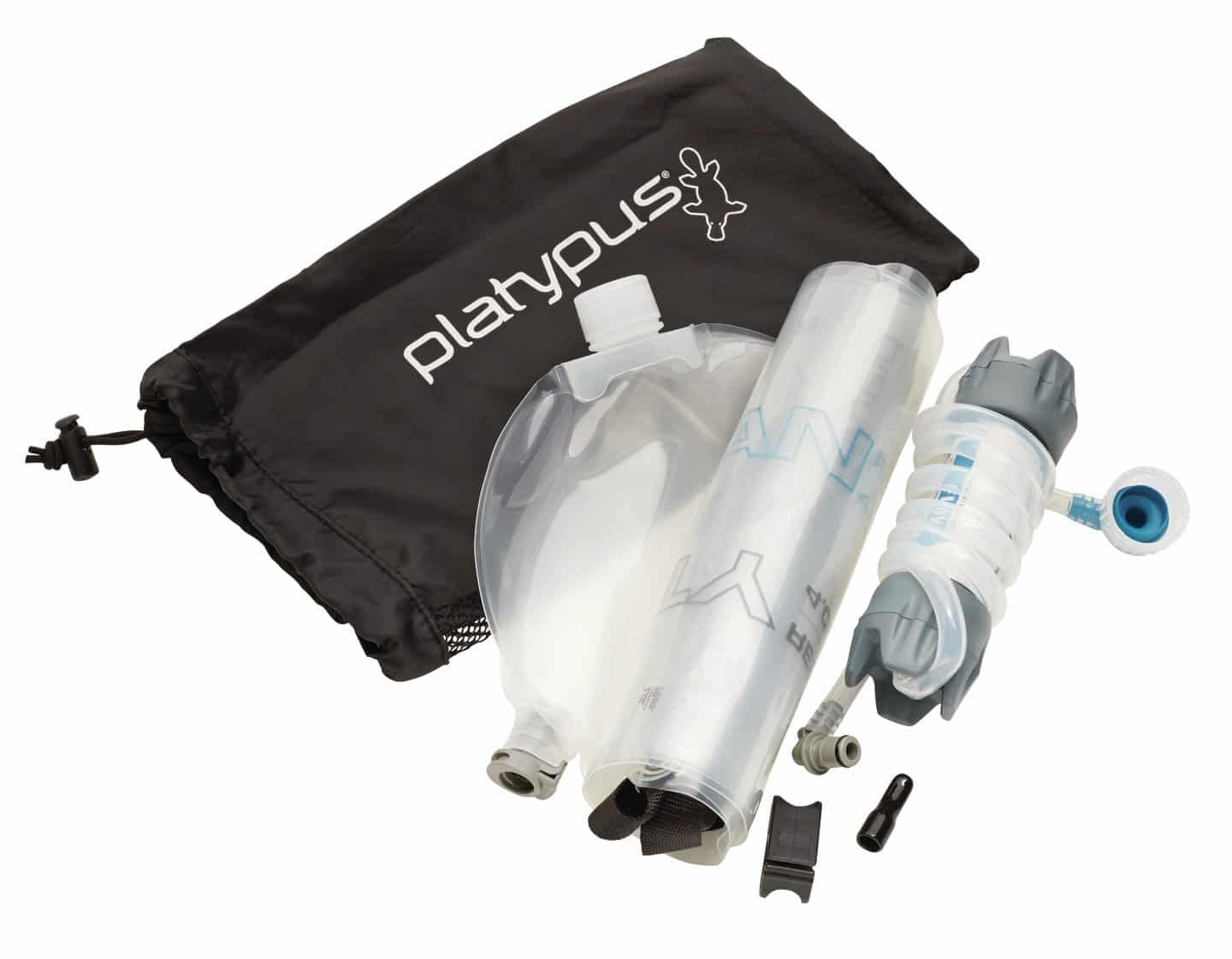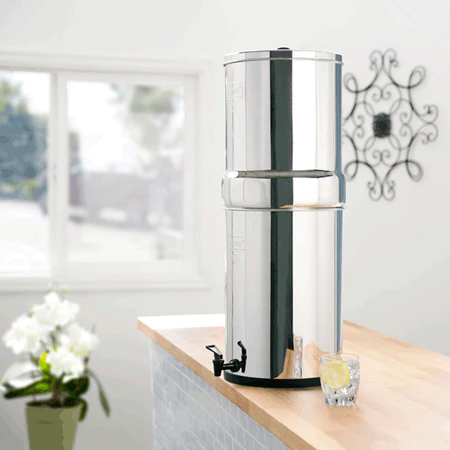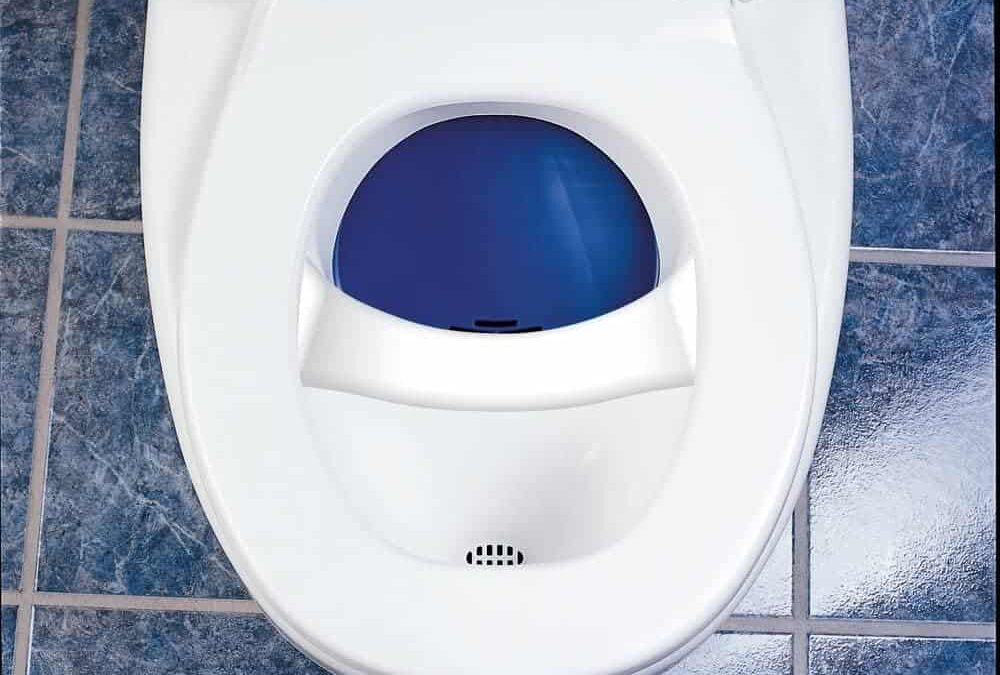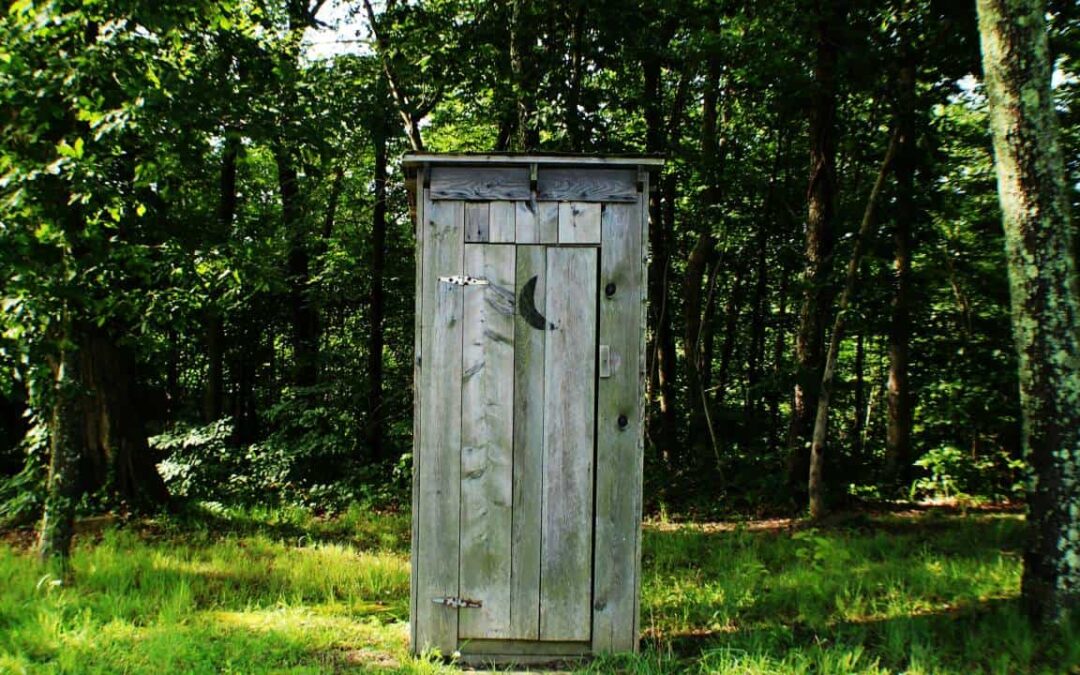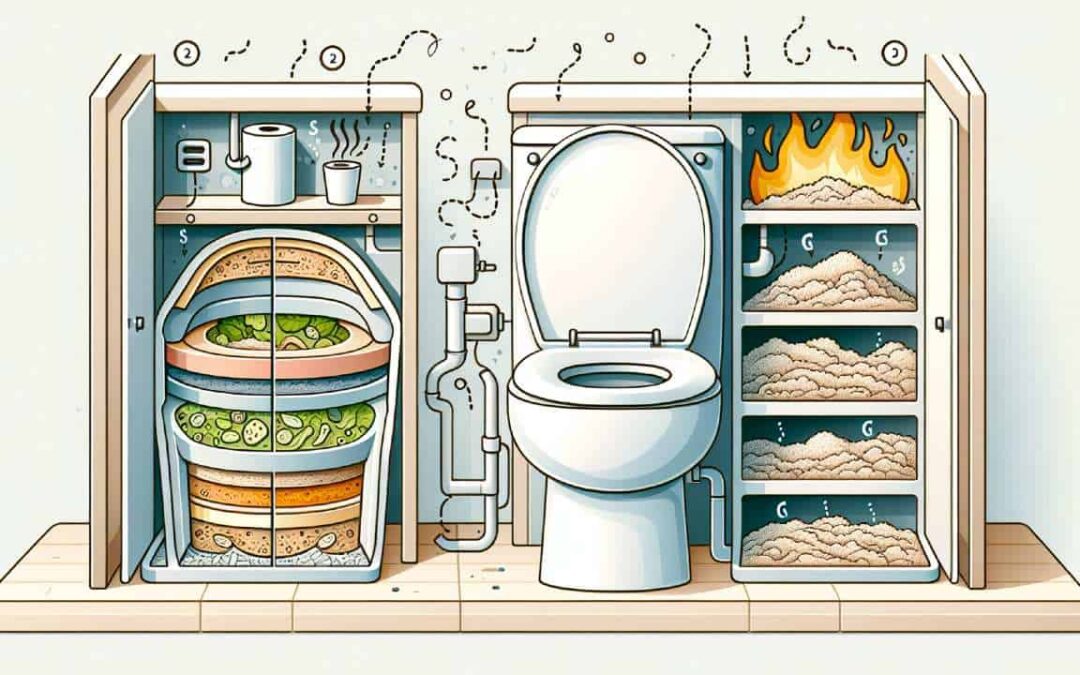Looking for a great water filter but are overwhelmed by seemingly infinite options?
You came to the right spot!
Sometimes, what we don’t see in our water—like viruses, bacteria, and pathogens—is what can do the most damage.
As a result, there’s never been a more important time to make sure your water is clean and safe for drinking.
In this article, you’ll find in-depth reviews on the 5 best water filters available on the market today.
Best Water Filters For Off Grid Living
For those who want a quick overview, below is our comparison table:
- Our #1 Rated Water Filtration System: Big Berkey (Best Overall Option)
- Our #2 Rated Water Filtration System: Alexapure Pro Water Filtration System (Best Runner Up)
- Our #3 Rated Water Filtration System: LifeStraw Family 1.0 (Most Portable Option)
- Our #4 Rated Water Filtration System: Platypus Gravity Works 4L
- Our #5 Rated Water Filtration System: Crown Berkey Water Filter
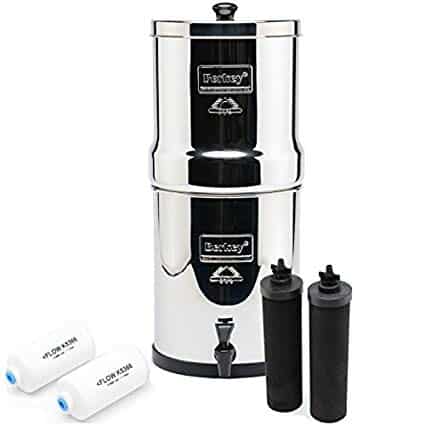







[toc]
Our #1 Rated Water Filtration System: Big Berkey (Best Overall Option)
- Capable of filtering up to 7 gallons of water per minute
- Removes 99.9999% of viruses and bacteria, as well as cysts and chemical contaminants
- Available in 5 different sizes
The Berkey line of gravity fed water filters are well known and have been the trusted leader in water filtration for a long time, and for good reason.
The Big Berkey is one of the most popular sizes of their filter line. It’s made up of a two part stainless steel gravity filter system.
The Big Berkey has storage capacity of 2.25 gallons of water. It relies on the Black Berkey water filter elements from New Millennium Concepts to work. These are some of the best filtration elements available.

Not only do they remove 99.9999% of bacteria, viruses and protozoa, they also greatly reduce any lead, chlorine or other chemical contaminants. This makes the Big Berkey suitable for use with any water water source.
Berkey Filters remove the following:
- Bacteria like E. coli – Greater than 99.9999%
- Chlorine – Removed to Undetectable Levels
- Viruses – Greater than 99.9999%
- Chloramines – Greater Than 99.9%
- Parasites – Greater than 99.9999%
- Heavy Metals – Greater than 99.9%.
- Pharmaceuticals – Greater than 99.5%
- Herbicides & Pesticides – Greater than 99.9%
- And more…
The Big Berkey is capable of filtering 3.5 gallons per hour with 2 filters. This is enough for daily use by a family of 4. The metal storage containers are burnished to a high sheen and look great on your countertop.
The elements themselves are each good for 3,000 gallons of water. You can use up to 4 total filters at once for a total flow rate of 7 gallons per hour. This allows you to rapidly expand your water production or preserve your filter elements.

Click here to check the price of a Big Berkey Water Filter.
Pros
- Capable of filtering up to 7 gallons of water per minute
- Removes 99.9999% of viruses, bacteria, and pathogens
- Removes
- Stores 2.25 gallons of water
- Looks really sharp
- Collapses down for easy transport and storage
- Filter elements good for 3,000 gallons
Cons
- Not the lowest priced (but the quality makes it worth it)
Our #2 Rated Water Filtration System: Alexapure Pro Water Filtration System (Best Runner Up)
- Very affordably priced for its capacity and performance
- Certified to remove more than 200 contaminants, including bacteria, viruses, protozoa, heavy metals, and chemicals
- 5,000-gallon filter element lifespan is impressive given its capabilities
- Can hold 2.25 gallons of filtered water
- The stainless steel body is attractive and easy to clean
The Alexapure Pro Water Filtration System is a new offering in the off-grid water filter market from a company with a history of making high-quality filtration systems and equipment. A direct competitor to our top-ranked Berkey filter, it has quickly established itself as a cost-effective and high-quality alternative.
Like the Berkey, the Alexapure relies on a dual-tank stainless steel design and offers a total capacity of 4.5 gallons. In our comparisons, the tanks themselves were virtually identical in both form and function, with Alexapure even offering the ability to use 1-4 filter elements to adjust the flow rate and filter life.
Alexapure’s filter elements use a combination of silver-impregnated ceramic outer layer for primary filtration and an internal chemical and viral filter core. Each filter is rated for 5,000 gallons of water and has been independently certified to remove more than 200 contaminants including bacteria, protozoa, viruses, chemicals, and heavy metals.
That works out to at least several years of use per filter element for the average family.
The flow rate was comparable to the top-ranked Berkey filter and offered a similar level of protection. The Alexapure was more affordable upfront, but the filter elements were more expensive to replace over the long term than with Black Berkey filters.

In our testing, we found the Alexapure and the Berkey to be neck and neck in terms of performance and reliability. Berkey narrowly edged out the Alexapure for our number one spot because of its decades of proven performance and long history of standing by its products.
Pros
- Very affordably priced for its capacity and performance
- Certified to remove more than 200 contaminants, including bacteria, viruses, protozoa, heavy metals, and chemicals
- 5,000 gallon filter element lifespan is impressive given its capabilities
- Can hold 2.25 gallons of filtered water
- Stainless steel body is attractive and easy to clean
Cons
Our #3 Rated Water Filtration System: LifeStraw Family 1.0 (Most Portable Option)
- Lightweight and easy to store
- Flow rate of 12 liters per hour
- Filter rated to 18,000 liters of water
- Requires no power
- Removes the vast majority of bacteria, viruses and cysts
- Affordable
When the original LifeStraw was released, it rapidly became one of the most popular and widely used personal water filters in the world. The LifeStraw Family 1.0 is a larger scale gravity fed version of their effective filter.
It uses a two part system comprised of a small reservoir connected to a filter with spigot. This allows you to hang the reservoir somewhere convenient and dispense filtered water as you like.
The LifeStraw Family 1.0 can filter up to 12 liters of water an hour and is effective at removing 99.99% of viruses, 99.9999% of bacteria and 99.9% of cysts. This leaves you with microbiologically safe drinking water.
The filter is rated for 18,000 liters of water, enough for a family of 4 for 3 years of use. It weighs just 1.6 lbs and the whole system rolls up into the reservoir. This allows you to use it when needed and stow it away when not.
One thing to keep in mind is that the LifeStraw Family doesn’t remove chemical contaminants. If your water supply may have been contaminated by fertilizer runoff or heavy metals, you’ll need additional filtration.

Pros
- Lightweight and easy to store
- Flow rate of 12 liters per hour
- Filter rated to 18,000 liters of water
- Requires no power
- Removes the vast majority of bacteria, viruses and cysts
- Relatively inexpensive
Cons
- Doesn’t remove chemical contaminants
- Has no water storage
Our #4 Rated Water Filtration System: Platypus Gravity Works 4L
- Capable of storing 8L of total water
- Weighs less than a pound and folds down into a very small package
- Removes 99.9999% of bacteria and 99.9% of protozoa
Each reservoir of the Platypus Reservoir contains 4 liters of water. By placing the dirty water reservoir above the clean one, gravity forces water through the filter element.
The filter used is made up of thousands of hollow fibers. This allows it to safely remove 99.9999% of bacteria and 99.9% of protozoa. The design of the hollow fibers also makes it one of the fastest gravity fed filters available.
It can produce 1.75 liters of pure water every minute. Each element is capable of filtering up to 1,500 liters of water before replacement.

The system itself is easy to set up and use. To remove filtered water you just open up the top of the clean water bag and either scoop or pour it into another container.
The whole thing weighs under a pound and can be stowed away in seconds. This makes it perfect for use in tight spaces to quickly filter water then put away.
Like many of the other treatment options on this list, it’s important you recognize what the filter can and can’t do. It does a great job removing bacteria and cysts, but doesn’t filter out viruses or potential chemical contaminants.

Pros
- Fast flow rate of 1.75 liters per minute
- Capable of storing 8L of total water
- Weighs less than a pound and folds down into a very small package
- Reasonably priced and easy to use
- Removes 99.9999% of bacteria and 99.9% of protozoa
Cons
- Doesn’t remove viruses or chemical contaminants
- Filter element must be replaced after just 1,500 liters
Our #5 Rated Water Filtration System: Crown Berkey Water Filter
- 6 Gallon Capacity
- For large families of 6+ people
- Add additional filters for longer lifespan and shorter filter cycles
The Crown Berkey Water Filter is reviewed by hundreds of customers and rated with a 4.8. With good reason. This Berkey filter is their biggest product and holds six gallons of purified water. This means you’re able to serve large groups of people, even up to 150 persons, with water for a prolonged period of time.
You might want to speed up filter times, which is why you can add multiple extra filters.
This water filter also comes with extra options for stands of spigots.
To top this beast of a water filter off, it comes with:
- Free Shipping
- Lifetime Warrenty
- 30-day return
You don’t need any extra tools or knowledge to set up the filter. You’ll have the system up and running (pun intended) in 15 minutes.
Read also our indepth review of the Bigberkey waterfilter.
What to Look For In A Water Treatment System
When comparing water treatment systems there are several key factors that come into play.
These include:
- Type and Level of Treatment
- Powered vs Gravity Fed
- Flow Rate
- Water Storage
Type of Filtration/Purification
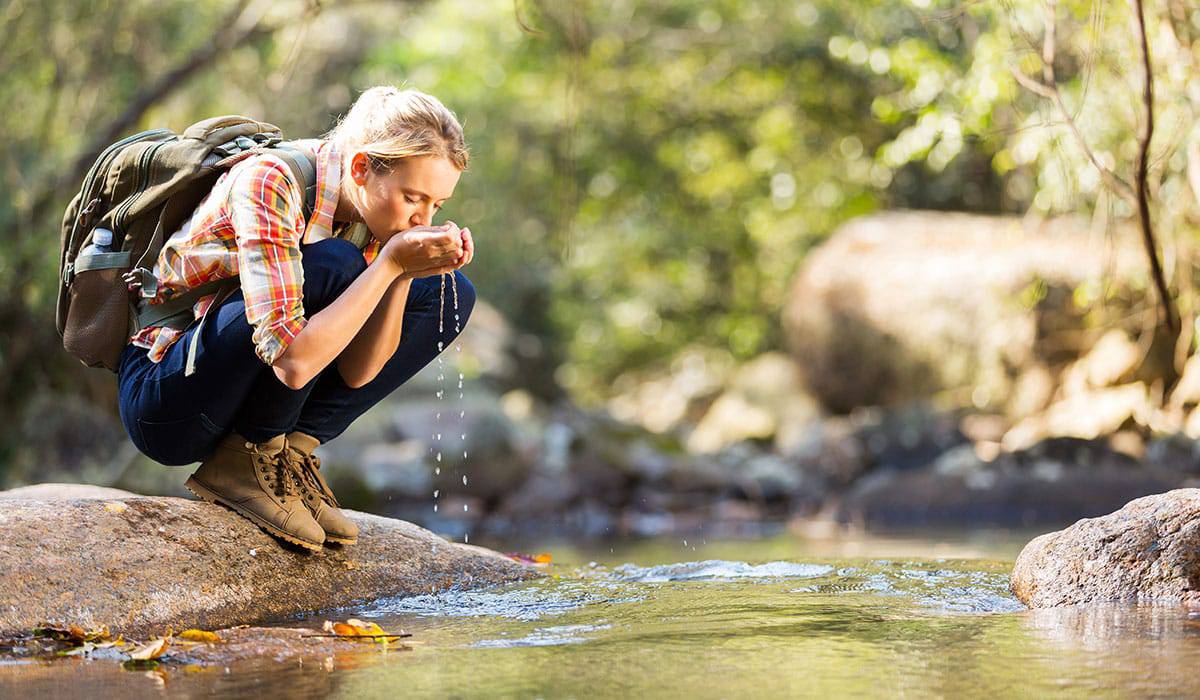
The first thing you should consider when comparing different water filters is how comprehensively it filters and purifies water.
If your water comes from a well, lake, river or something like a rain catchment system, it’s not going to be microbiologically safe to drink.
There may also be things like agricultural runoff, heavy metals or other major contaminants present.
You need a treatment system that can remove physical particulate matter, filter out contaminants, and disinfect bacteria, viruses, and protozoa.
Some water treatment systems will do this purely with filters. Others combine filters with chemical treatments like chlorine or UV radiation.
For most situations, we don’t recommend chemical treatments. The goal is to become more sustainable after all and chlorine treatment isn’t very environmentally friendly.
On the other hand, UV is great, but it too has limitations. Any water you’re treating with UV radiation must first be run through a filter to remove particulates.
Powered vs Gravity Fed
With water treatment systems, there are two main methods used to actually filter the water:
- Powered
- Gravity Fed
Powered filters are much less common. For off-grid and sustainable living, they usually run off DC batteries connected to solar and have the ability to filter a lot more water than other systems.
The majority of sustainable water treatment options will be gravity-fed. These rely on two or more containers stacked on top of each other.
The topmost container holds untreated water and the force of gravity moves it through the filter elements.
Gravity-fed filters aren’t as fast as powered filters, but they also don’t require electricity.
This makes them excellent if you’re on solar and trying to conserve energy, or as an emergency backup system.
Flow Rate
Flow rate is one of the most important metrics when comparing different water treatment systems. Powered systems will always be much faster than gravity fed systems.
This only comes into play when you’re dealing with a high demand for water over a very short amount of time. Most gravity fed treatment systems give you about a 1 to 4 gallon flow rate per hour.
By comparison, powered systems can give you that same flow rate per minute. If you need to provide water for a lot of people, a powered system may be the way to go. You should expect to pay a premium for them, though.
Water Storage
One of the key differences between water filters and water treatment systems for off-grid living is water storage. Water treatment systems produce water faster than a water filter and generally have at least a several liter storage capacity.
The most comprehensive water treatment systems don’t have storage. They’re built to filter enough water to fill barrels and cisterns over a relatively short amount of time.
Figure out how much water you want on hand versus the amount of time it takes to treat more. That will tell you how much water storage you need in your system or whether you should go for a higher capacity one that doesn’t store its own water.
Final Thoughts
You’ll use your water treatment system more than just about any other part of your home. Make sure the one you pick has all the features and capabilities you need, and that it will give you clean drinking water during hard times.
Our overall best pick, and the filter that provides the best solution for filtering out harmful contaminants, like viruses and bacteria, is the gravity fed Big Berkey filter.
It requires no power, removes chemical and biological contaminants, and is capable of providing ample water for a family of 4.
Regardless of which of the water filters you decide to purchase, there are few things as great as a nice, cold refreshing glass of pure water after a long day’s work.
Additional readings:
For more in-depth learning, read our Alexapure Vs Big Berkey – Comparison Guide and Comprehensive Big Berkey Water Filter Review.



